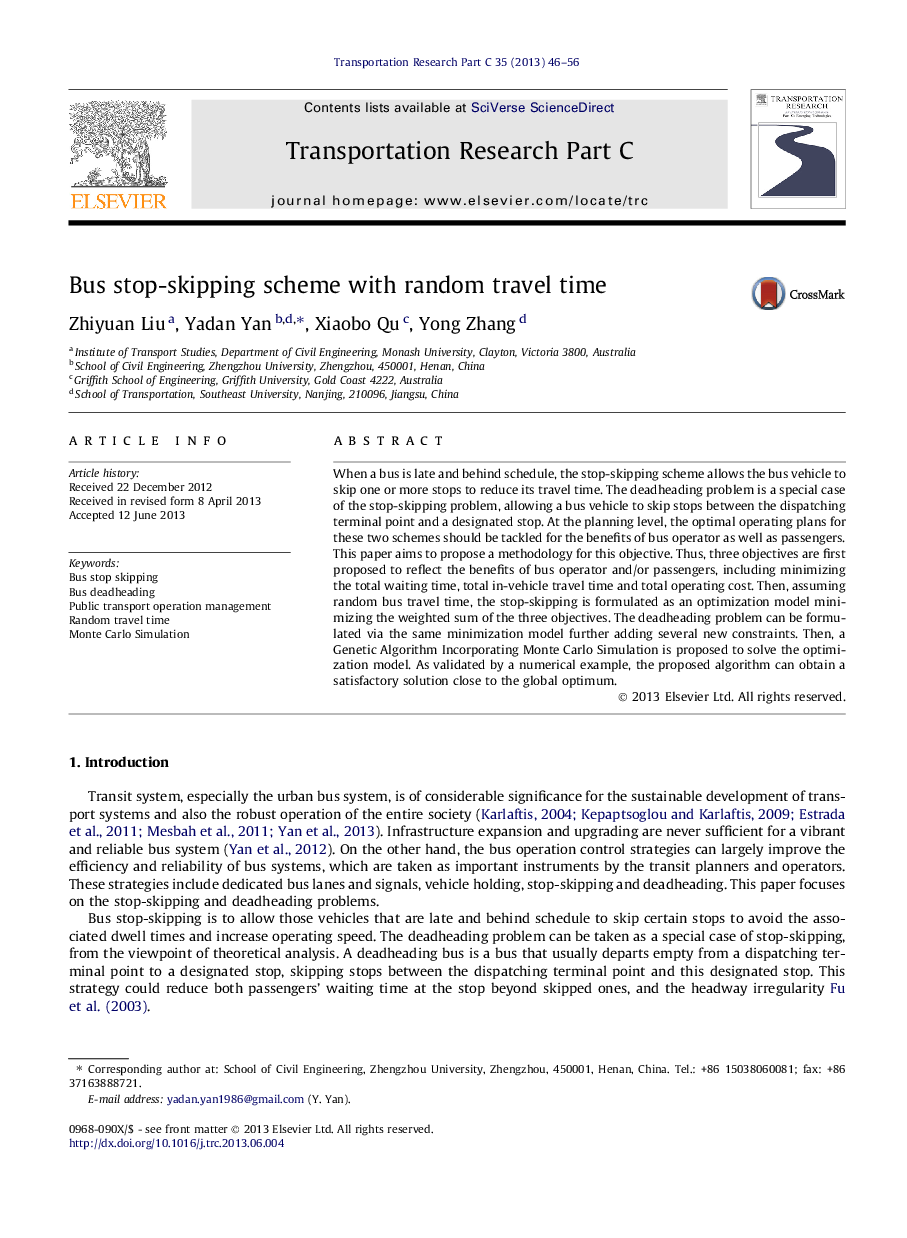| Article ID | Journal | Published Year | Pages | File Type |
|---|---|---|---|---|
| 526482 | Transportation Research Part C: Emerging Technologies | 2013 | 11 Pages |
•Considered two strategies for bus operations, stop skipping and deadheading.•The bus in-vehicle time is assumed to be random.•Proposed two optimization models for optimizing these two strategies.•A Genetic Algorithm Incorporating Monte Carlo Simulation based solution algorithm is proposed.
When a bus is late and behind schedule, the stop-skipping scheme allows the bus vehicle to skip one or more stops to reduce its travel time. The deadheading problem is a special case of the stop-skipping problem, allowing a bus vehicle to skip stops between the dispatching terminal point and a designated stop. At the planning level, the optimal operating plans for these two schemes should be tackled for the benefits of bus operator as well as passengers. This paper aims to propose a methodology for this objective. Thus, three objectives are first proposed to reflect the benefits of bus operator and/or passengers, including minimizing the total waiting time, total in-vehicle travel time and total operating cost. Then, assuming random bus travel time, the stop-skipping is formulated as an optimization model minimizing the weighted sum of the three objectives. The deadheading problem can be formulated via the same minimization model further adding several new constraints. Then, a Genetic Algorithm Incorporating Monte Carlo Simulation is proposed to solve the optimization model. As validated by a numerical example, the proposed algorithm can obtain a satisfactory solution close to the global optimum.
